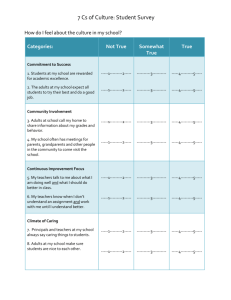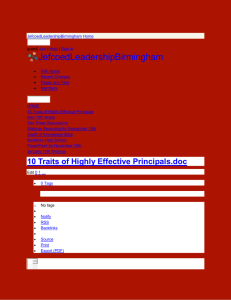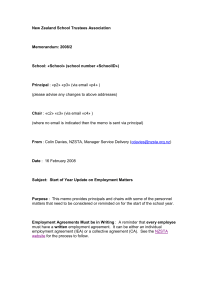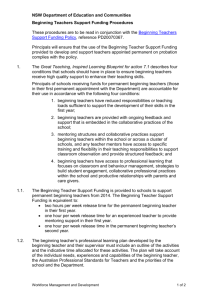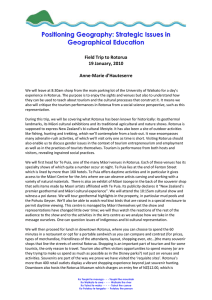Wednesday was a good day in the fight against NS
advertisement
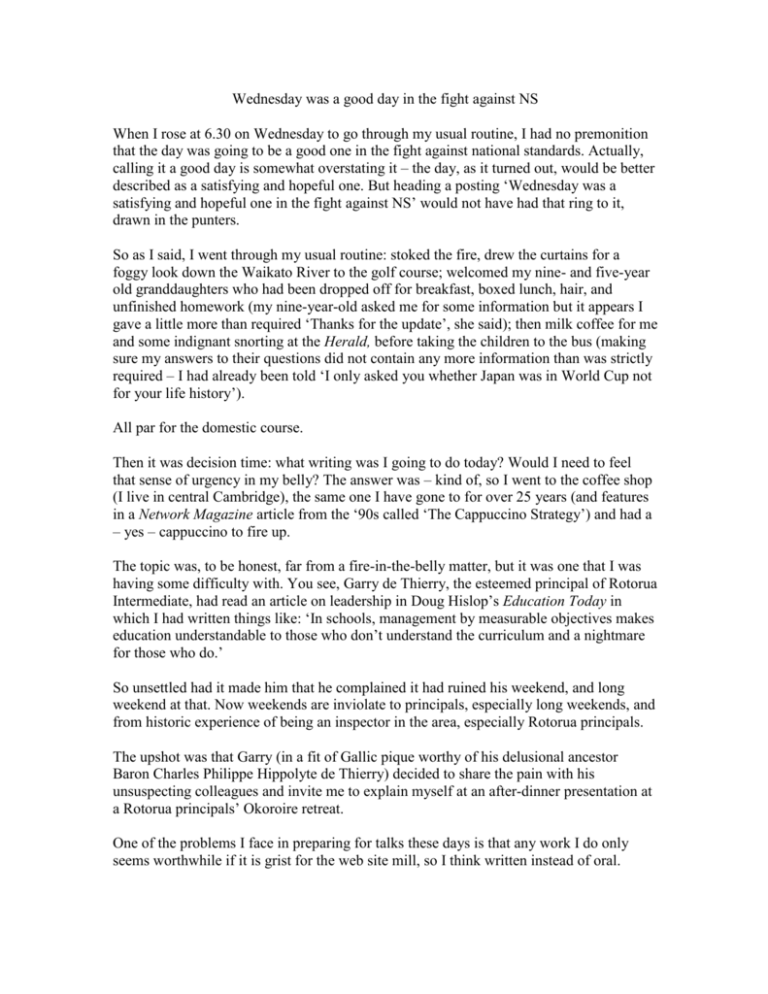
Wednesday was a good day in the fight against NS When I rose at 6.30 on Wednesday to go through my usual routine, I had no premonition that the day was going to be a good one in the fight against national standards. Actually, calling it a good day is somewhat overstating it – the day, as it turned out, would be better described as a satisfying and hopeful one. But heading a posting ‘Wednesday was a satisfying and hopeful one in the fight against NS’ would not have had that ring to it, drawn in the punters. So as I said, I went through my usual routine: stoked the fire, drew the curtains for a foggy look down the Waikato River to the golf course; welcomed my nine- and five-year old granddaughters who had been dropped off for breakfast, boxed lunch, hair, and unfinished homework (my nine-year-old asked me for some information but it appears I gave a little more than required ‘Thanks for the update’, she said); then milk coffee for me and some indignant snorting at the Herald, before taking the children to the bus (making sure my answers to their questions did not contain any more information than was strictly required – I had already been told ‘I only asked you whether Japan was in World Cup not for your life history’). All par for the domestic course. Then it was decision time: what writing was I going to do today? Would I need to feel that sense of urgency in my belly? The answer was – kind of, so I went to the coffee shop (I live in central Cambridge), the same one I have gone to for over 25 years (and features in a Network Magazine article from the ‘90s called ‘The Cappuccino Strategy’) and had a – yes – cappuccino to fire up. The topic was, to be honest, far from a fire-in-the-belly matter, but it was one that I was having some difficulty with. You see, Garry de Thierry, the esteemed principal of Rotorua Intermediate, had read an article on leadership in Doug Hislop’s Education Today in which I had written things like: ‘In schools, management by measurable objectives makes education understandable to those who don’t understand the curriculum and a nightmare for those who do.’ So unsettled had it made him that he complained it had ruined his weekend, and long weekend at that. Now weekends are inviolate to principals, especially long weekends, and from historic experience of being an inspector in the area, especially Rotorua principals. The upshot was that Garry (in a fit of Gallic pique worthy of his delusional ancestor Baron Charles Philippe Hippolyte de Thierry) decided to share the pain with his unsuspecting colleagues and invite me to explain myself at an after-dinner presentation at a Rotorua principals’ Okoroire retreat. One of the problems I face in preparing for talks these days is that any work I do only seems worthwhile if it is grist for the web site mill, so I think written instead of oral. Would you believe that at one stage I considered basing what I had to present on the structure of Christmas Carol? So I sat down at my desk, and my aging senses, sharpened by the Italian brew, allowed better counsel to prevail. In the end I was quite pleased with the outcome, but my advice to Rotorua principals is that if they can avoid the after-dinner part they would be well advised to do so. Then unfolded the kind of pattern to my day to which I’ve become accustomed. I rang John Gerritsen advising him about something interesting coming up from the NZPF and giving him a backgrounder. Some principals rang with some information. Then Kelvin Davis was on the phone wanting to confirm some details about a posting he was going to base a parliamentary question on. I also gave him a similar backgrounder to the one given to John Gerritsen. At 1.00 off to the gym (Anytime Gym, great concept) making sure I’m back to hear Kelvin ask his question (about Roger Goulstone and Valley School and the games the ministry is playing). He was most adroit in his questioning, eliciting some mocking laughs, but then came mild bombshell, if somewhat delayed in registering, when he forced Tolley to give the most up-to-date figures on school compliancy. She said 1922 charters had been analysed and 1389 had been found compliant. Because neither of the two Kelvin’s have had the benefit of participating in the numeracy project, the actual number of compliant schools took a while to register: wait for it! 533 with more to come. That figure is massive. Well over a quarter of New Zealand primary schools have principals and boards of trustees going against the grain of defying the law in the interests if a principled stand for the children of New Zealand. Ethically-compliant schools you are not alone. The satisfying and hopeful day was well on its way. Then came the BTAC newsletter. It was a beauty: concise, practical, powerful, with a sense of momentum, and, above all, and what I have been advocating for – a strong sense of community, of supporting each other, of the need to break down isolation. I was elated and rang Perry to congratulate him. And while I’m on congratulations – congratulations too, to the NZPF. From various sources I know a lot about the ins and outs, but in the end you have come up with the goods – well done to all, from Peter Simpson down – I’m convinced that education historians will marvel, compared with what has happened overseas, at the unity and sense of purpose displayed. And congratulations too, to the NZEI. The advertisements are spot on, and so have been your newsletters and general resolve. Now back to the BTAC newsletter (which, to return to theme, could only have been as effective as it was because of the general unity in the profession). Regional BTAC meetings – Yes! Fantastic! Advice on how to handle the ministry letter. Yes – mainly bluster in it, so don’t falter. The ministry is required to negotiate and you are allowed to follow your due processes. Yes – everything in writing and laboriously overseen by you and the board. The legal advice sits fairly quietly on the BTAC page, but in my view, the grounds for the legal challenge (being kept under wraps for the moment) are very, very promising. Then there is the matter of the data for the 2012 Annual Report and national standards. In one sense, this is the next crunch point for schools, from my point-ofview, it is more a major crunch point for the ministry. One of the difficulties with getting the national standards’ message across to parents is the complexity of it – but the message about league tables and the associated labelling of schools and the subsequent labelling of children who attend them, is straightforward and potent. Recording the numbers and percentages of children above, at, below or well below standard, and being ordered to send them to Wellington provides a dynamite argument against national standards. It is a huge opportunity to finish them off. Skilfully used, I predict that a significant number of further schools will decide to join the ethically-compliant. Tolley is aware of this and will try and give assurances – accept none of these and go full throttle. Tolley, in the long run can only delay, indeed, will only want to delay, so accept nothing that smacks of national standards’ type reporting of school data. To complete my day, I received a call from a principal recounting a farcical set of exchanges between the school and the ministry over the bluster letter. And he had done everything beautifully, recording every Marx brothers’-type exchange. On this web site, I have reported how the ministry is threatening to get tough after the election if National is returned, my intuition tells me now, however, pondering John Key’s personality and how things are developing, we could well have a new minister of education and a radical change of policy, though face-savingly disguised from seeming so. Yes – a satisfying and hopeful day. So much so that I was emboldened, perhaps rashly so, to tell my granddaughter that I didn’t want the information I was about to impart her to be proceeded by a comment about not wanting my life history.
